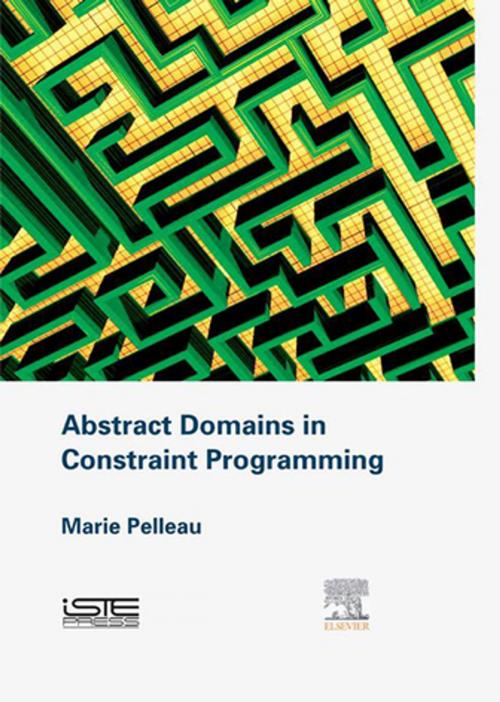Abstract Domains in Constraint Programming
Nonfiction, Computers, Advanced Computing, Programming, Expert Systems, Artificial Intelligence, General Computing| Author: | Marie Pelleau | ISBN: | 9780081004647 |
| Publisher: | Elsevier Science | Publication: | May 20, 2015 |
| Imprint: | ISTE Press - Elsevier | Language: | English |
| Author: | Marie Pelleau |
| ISBN: | 9780081004647 |
| Publisher: | Elsevier Science |
| Publication: | May 20, 2015 |
| Imprint: | ISTE Press - Elsevier |
| Language: | English |
Constraint Programming aims at solving hard combinatorial problems, with a computation time increasing in practice exponentially. The methods are today efficient enough to solve large industrial problems, in a generic framework. However, solvers are dedicated to a single variable type: integer or real. Solving mixed problems relies on ad hoc transformations. In another field, Abstract Interpretation offers tools to prove program properties, by studying an abstraction of their concrete semantics, that is, the set of possible values of the variables during an execution. Various representations for these abstractions have been proposed. They are called abstract domains. Abstract domains can mix any type of variables, and even represent relations between the variables.
In this work, we define abstract domains for Constraint Programming, so as to build a generic solving method, dealing with both integer and real variables. We also study the octagons abstract domain, already defined in Abstract Interpretation. Guiding the search by the octagonal relations, we obtain good results on a continuous benchmark. We also define our solving method using Abstract Interpretation techniques, in order to include existing abstract domains. Our solver, AbSolute, is able to solve mixed problems and use relational domains.
- Exploits the over-approximation methods to integrate AI tools in the methods of CP
- Exploits the relationships captured to solve continuous problems more effectively
- Learn from the developers of a solver capable of handling practically all abstract domains
Constraint Programming aims at solving hard combinatorial problems, with a computation time increasing in practice exponentially. The methods are today efficient enough to solve large industrial problems, in a generic framework. However, solvers are dedicated to a single variable type: integer or real. Solving mixed problems relies on ad hoc transformations. In another field, Abstract Interpretation offers tools to prove program properties, by studying an abstraction of their concrete semantics, that is, the set of possible values of the variables during an execution. Various representations for these abstractions have been proposed. They are called abstract domains. Abstract domains can mix any type of variables, and even represent relations between the variables.
In this work, we define abstract domains for Constraint Programming, so as to build a generic solving method, dealing with both integer and real variables. We also study the octagons abstract domain, already defined in Abstract Interpretation. Guiding the search by the octagonal relations, we obtain good results on a continuous benchmark. We also define our solving method using Abstract Interpretation techniques, in order to include existing abstract domains. Our solver, AbSolute, is able to solve mixed problems and use relational domains.
- Exploits the over-approximation methods to integrate AI tools in the methods of CP
- Exploits the relationships captured to solve continuous problems more effectively
- Learn from the developers of a solver capable of handling practically all abstract domains















